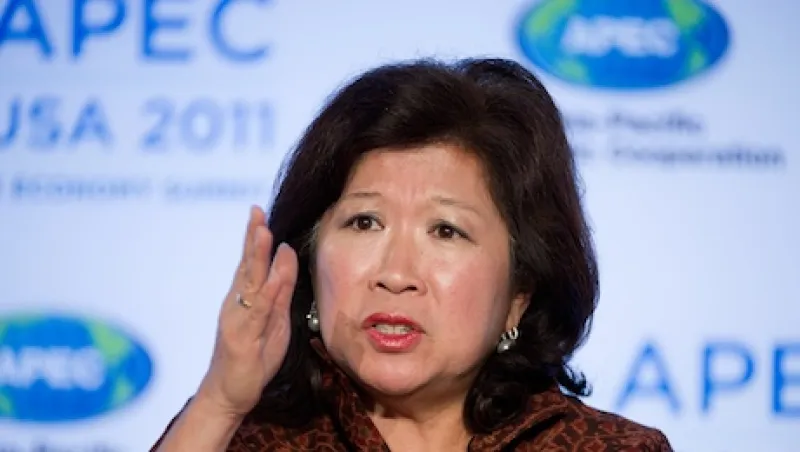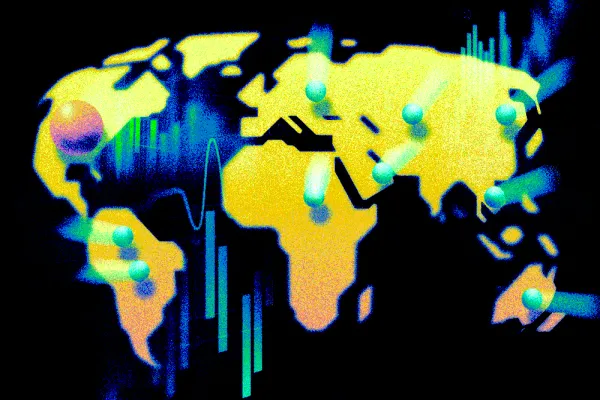With advanced economies struggling to recover from the financial crisis, emerging-markets nations determined to maintain strong growth, and everyone looking over their shoulder for signs of unfair currency depreciations, the spring meetings of the International Monetary Fund and the World Bank have not exactly been a showcase of multilateralism.
But change is coming to one of the globe’s leading multilateral institutions, the World Trade Organization. And for Mari Pangestu, a leading contender to take over from Pascal Lamy as the head of the WTO, reviving multilateralism in the context of global trade will require some lowering of sights in the near term. The all-or-nothing template on which global negotiations have taken place, the latest version of which is the long-stalled Doha Round, will need to give way to a more modest and incremental approach.
“Doha is not dead,” says Pangestu, who served as Indonesia’s Trade minister from 2004 to 2011 and is now the country’s Tourism minister. “We can still achieve progress but in a realistic and pragmatic way. You do it step by step instead of the whole big package,” she adds in an interview on the sidelines of the IMF-World Bank meetings in Washington.
This diminished ambition reflects the harsh realities of the Doha Round, which was launched with great hopes in the wake of the September 2011 terrorist attacks but has been on ice since advanced and emerging-markets nations hit a deadlock in 2008. Since then, many countries have focused their energies on a proliferation of bilateral and regional free trade efforts, including a proposed Transatlantic Trade and Investment Partnership that the U.S. and European Union agreed last month to begin negotiating.
Pangestu recognizes that the WTO has a critical role to play in ensuring that these bilateral and regional deals remain consistent with global standards and do not become a “spaghetti bowl,” as she puts it, of contradictory and costly constraints on trade. But that does not imply that the WTO will become a mere ombudsman, monitoring bilateral trading flows from the sidelines, she stresses.
“There are just some issues that cannot be negotiated bilaterally, such as agriculture,” she explains. “And there are issues that you may deal with in a subgroup, and then when you’re ready to multilateralize them, you can take things to the WTO”
Pangestu is one of five candidates — along with Tim Groser of New Zealand, Herminio Blanco of Mexico, Taeho Bark of South Korea and Roberto Carvalho de Azevêdo of Brazil — vying for the position of director-general. Representatives of the WTO’s 158 member countries will vote in Geneva later this weekeds: week of Apr 22 to whittle the field down to two; the ultimate winner is due to be chosen some time in May. Lamy, who has served in the top post since 2005, will step down in August.
The first test for the new director-general will come at the WTO’s ministerial summit, due to be held in Bali in December. Pangestu is hopeful that the meeting will produce what WTO officials call an “early harvest,” or agreement on certain issues such as trade facilitation and some elements of agriculture, that could restore the organization’s credibility and revive momentum on other parts of the Doha agenda in the years ahead. A recent World Bank study on global value chains found that the kind of trade facilitation package under consideration, which centers on expediting customs procedures and removing other red tape to trade flows, could yield $1 trillion in economic gains.
Pangestu acknowledges that political support for freer trade has waned significantly. Part of the task of the next director-general will be to make a forceful case for open trade to ordinary people, she says, and to ensure that countries open up in a way that does not disadvantage small businesses and lower-income households. Her big pitch for the job is that, as a minister from an emerging economy that has reaped the benefits of trade liberalization, she has the experience, credibility and political smarts to convincingly preach that free-trade gospel.
Assuming an early harvest deal can be struck, Pangestu says the WTO needs to move on to finalizing the remaining segments of Doha, including the removal of barriers to trade in agriculture, services and industrial goods. “We know that we cannot just have agriculture,” she says. “The trade-off needs to be there on the negotiations in industrial goods and services.”
As to how that might happen, Pangestu admits she has neither a rabbit nor a hat to pull it from. “I don’t have a magic solution,” she says. But she suggests that the WTO can draw on the trend toward regionalism and enlist other multilateral institutions, like the IMF and the World Bank, to press the case for free trade. And she draws encouragement from the fact that the global financial crisis did not produce an upsurge in protectionism, thanks largely to the WTO’s vigilance and a firm commitment by the Group of 20 nations to maintain trade openness.
Her enthusiasm and qualifications for the WTO post are evident. Pangestu holds a Ph.D. in economics from the University of California, Davis, and worked as an academic before embarking on her political career in 2004. She declines to be drawn on her chances, though.“I’m just here to compete on a fair basis,” she says, “and I hope the vote will be based on competency and merit — and gender balance.”







